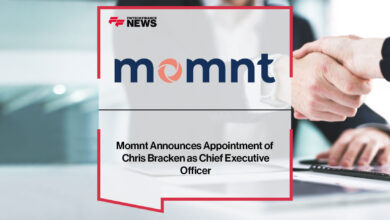Exclusive: Fintech Yendo has raised $150 million in debt and $15 million in equity

When Jordan Miller started Yendo, a fintech startup providing vehicle-secured credit cards, he wanted to dive headfirst into a challenge.
“People want to work on payments, or things for ultra-high-net-worth individuals,” Miller told me over Zoom. “But access to cheap credit, in a way that gives people tools to finance their daily lives without pressuring them…It’s a really dirty problem, a middle America problem. To be completely honest, a lot of predatory lending is illegal in California and New York, where most fintech innovation comes from. No one has really solved this.”
Yendo, based in Dallas, has now raised $150 million in debt financing, led by i80 Group, and $15 million million in equity, Fortune can exclusively report. The startup is growing, with a long waitlist and plans to expand across all 50 states.
Yendo’s idea is essentially this: Car-secured loans have historically performed well because people both need their cars and frequently own them outright.
“We wanted to find an asset class that was the most universally owned and understood in a way where we could provide the absolute cheapest cost of capital possible,” said Miller.
So, a vehicle-secured credit card can help subprime consumers access a prime rate. (Yendo’s fixed APR is 29.88%. For reference, Amex’s variable APR is between 19.24% and 29.99%, and Chase Sapphire’s variable APR is up to 29.99%.) Yendo’s goal is to provide comparable access to those who wouldn’t have previously had it. “We’re both internally and externally locked into our prime rate,” Millet said. “We literally cannot go above the current rate that we have.”
This gets to the essence of the biggest outstanding question: How does Yendo prevent its product from becoming predatory? How can they fill that need in the marketplace for true dependable credit, for everyone?
The case that Miller makes is that Yendo’s entire business model falters if they have to start repossessing cars with any kind of frequency whatsoever—that would mean the underwriting model has flopped.
Wesley Chan, FPV Ventures cofounder and managing partner, had the exact same question as he was doing diligence on the company and its underwriting process.
“We sat down and looked at his numbers and said, ‘Who are you letting in?’” Chan recounts. “We talked to the team who underwrites it, and they want people who will pay them back. The more they own the car, the more they use it, the more they stick with Yendo, the more money he makes…He wants people to stick with them forever rather than f–k them.”
Yendo’s total addressable market is in the vicinity of $120 billion, the company estimates, and it undergoes the same regulatory review that all banking products go through, Miller tells me. And the company’s customer “is the everyday working person, 35 to 50 years old,” said Miller.
“They’re living in Waxahachie, Texas, Orlando, Florida, or Auburn, Alabama,” he added. “They’re trying to go to school, or trying to figure out how to pay for their kids’ books.”
I spoke to one of those customers, Mela Lewis-Moss, a social worker and mother of five, referred to me by the company. She praised the app’s ease of use and told me that, even when she accidentally missed a payment, she didn’t feel stressed—that Lewis-Moss felt as though the company treated the moment like a misunderstanding, rather than an opportunity to penalize her. For Lewis-Moss, the text-forward nature of the customer experience at Yendo has really worked.
“You feel like someone’s just there for you,” said Lewis-Moss, adding that the mechanic of texting is intimate and immediate, building trust.
How will Miller know, over the next few years, if Yendo is both successful and has avoided becoming the predatory lender it hopes to displace? I tell him we should plant a flag, and he’s direct.
“Killing title lending is a good indicator of success,” he said.
You could say the goal is to give credit where it’s due—widely.
See you tomorrow,
Allie Garfinkle
Twitter: @agarfinks
Email: alexandra.garfinkle@fortune.com
Submit a deal for the Term Sheet newsletter here.
Joe Abrams curated the deals section of today’s newsletter.
VENTURE DEALS
– Alkira, a San Jose, Calif.-based provider of on-demand network infrastructure, raised $100 million in Series C funding. Tiger Global Management led the round and was joined by Dallas Venture Capital, Geodesic Capital, NextEquity Partners, and existing investors.
– Cover Genius, a New York City-based provider of embedded insurance technology designed to protect e-commerce customers, raised $80 million in Series E funding. Spark Capital led the round and was joined by existing investors Dawn Capital, King River Capital, and G Squared.
– Steno, a Los Angeles, Calif.-based developer of court reporting and other legal technology, raised $46 million in funding. Left Lane Capital led the round and was joined by Trinity Capital and Rivonia Road Capital.
– May Health, a Menlo Park, Calif. and Paris, France-based company developing a treatment designed to restore ovulation in women with polycystic ovary syndrome, raised $25 million in Series B funding. Bpifrance and Trill Impact Ventures led the round and were joined by founding investor Sofinnova Partners.
– Harbor Lab, an Athens, Greece-based developer of accounting software for maritime operations, raised $16 million in Series A funding. Atomico led the round and was joined by existing investors Notion Capital, Venture Friends, Speedinvest, The Dock, and others.
– trawa, a Berlin, Germany-based energy purchasing and management platform for small and medium-sized businesses, raised €10 million ($10.8 million) in seed funding. Balderton Capital led the round and was joined by AENU and existing investors Speedinvest, Magnetic, and TinyVC.
– Recall.ai, a San Francisco-based developer of AI technology for video conferences, raised $10 million in funding. Ridge Ventures led the round and was joined by Industry Ventures, Y Combinator, IrregEx, Bungalow Capital, Hack VC, and others.
– Orange Charger, a San Francisco-based developer of electric vehicle chargers, raised $6.5 million in seed funding. Munich Re Ventures and Climactic led the round and were joined by Baukunst, Lincoln Properties Ventures, Crow Holdings, and Space Cadet Ventures.
– Layer, a San Francisco-based company designed to help software companies integrate accounting and bookkeeping features directly into their platforms, raised $2.3 million in pre-seed funding. Better Tomorrow Ventures led the round and was joined by others.
– c/side, a San Francisco-based cybersecurity platform that monitors and secures third-party scripts, raised $1.7 million in pre-seed funding. Scribble Ventures led the round and was joined by Roar Ventures, Kathy Korevec, Dan Scheinman, Jason Warner, and others.
– Numra, a Dublin, Ireland-based AI-powered automation platform for finance and accounting teams, raised €1.5 million ($1.6 million) in funding. Elkstone led the round and was joined by angel investors.
PRIVATE EQUITY
– CallRevu, backed by Serent Capital, acquired TotalCX, a Houston, Texas-based customer communications platform for automotive dealerships. Financial terms were not disclosed.
– Gregory FCA, backed by Copley Equity, acquired BackBay Communications, a Boston, Mass. and London, U.K.-based PR firm for the financial services industry. Financial terms were not disclosed.
– Hansons, a portfolio company of Huron Capital, acquired Paramount Builders, a Virgina Beach, Va.-based roofing, replacement window, and siding contractor. Financial terms were not disclosed.
– PANOS Brands, a portfolio company of HKW, acquired The Santa Barbara Smokehouse, a Santa Barbara, Calif.-based smoked salmon producer. Financial terms were not disclosed.
EXITS
– Avathon Capital agreed to acquire Summit Professional Education, a Franklin, Tenn.-based professional education platform for physical therapy, occupational therapy, and speech language pathology, from Greybull Stewardship. Financial terms were not disclosed.
– Dessert Holdings, a portfolio company of Bain Capital, acquired Kenny’s Great Pies, a Smyrna, Ga.-based manufacturer of cream-based pies, from Kaho Partners. Financial terms were not disclosed.
FUNDS + FUNDS OF FUNDS
– Accion, a Washington, D.C.-based nonprofit, raised $152.5 million for its digital transformation fund focused on financial institutions serving small businesses.
– Shilling, the Lisbon, Portugal-based venture capital arm of Draycott SCR, raised €50 million ($54.4 million) for their first Opportunity Fund focused on companies digitizing the health care, SaaS, e-commerce, and other sectors and other tech companies.
PEOPLE
– Compass Diversified (NYS: CODI), a Westport, Conn.-based private equity firm, promoted Alex Mayes to vice president.
– Pillar VC, a Boston, Mass.-based venture capital firm, promoted Parker McKee, Tony Kulesa, and Thomas de Vlaam to partner.
– RF Investment Partners, a New York City-based private equity firm, hired James Bishop as director and Daniel Kim as associate. Formerly, Bishop was with Golub Growth and Kim was with Frontier Growth.



